48 F. high temperature in the Twin Cities Wednesday.
54 F. average high on April 8.
54 F. high on April 8, 2014.
April 8, 1805:
John Sayer at the Snake River Fir Trading Post near present day Pine
City mentions: "The most tempestuous (stormy) day of the year. Pines and
other trees fell near the fort."
Accidental Inventions
Penicillin,
Velcro, Teflon, Post-It Notes, the microwave, Viagra, even Coca Cola
were accidental discoveries. They all did pretty well, in 20/20
hindsight.
During World War II radar operators tracking allied
aircraft noticed mysterious smudges of interference on their screens. It
turned out to be rain and snow. Now we take it for granted; Doppler
radar on your PC, apps, soon on your watch.
Today we can track
approaching storm and take evasive action, lowering the risk of damage
and injury. Encountering a squall line or tornadic storm must have been
even more terrifying before radar came of age, not knowing what was
really out there.
Radar, satellites & numerical weather
prediction, models that use math and physics to simulate and predict how
the fluid of air overhead should move over time, have taken much of the
mystery out of the weather.
We're sliding into a wetter pattern;
significant rain likely today and Sunday - a surge of warmth sparks
T-storms with locally heavy rain the middle of next week.
Drought-denting rain.
Mother Nature is still hopelessly confused.
Springy 60s return Saturday into much of next week, but ECMWF guidance
hints at some slush 8 days out.
Lovely.
Ohio Valley Severe Storm Threat.
Our internal TPI (Tornado Potential Index) shows the greatest chance of
supercell thunderstorms bubbling up along the Ohio River, from near
Louisville and Cincinnati to Dayton and Columbus. I expect more tornado
watches and warnings later in the day Thursday. Source: AerisWeather.
Enhanced Severe Storm Threat.
NOAA SPC (Storm Prediction Center) shows a broad area of the USA under
the gun later today with a significant severe threat from Little Rock
and Memphis to Chicago, Detroit and Cleveland. Most communities will see
hail and strong winds - any tornadoes will be isolated.
A Spurt of Spring Fever.
Today will be rainy and raw with some much-needed moisture perking up
your lawn within 72 hours. We should start to green up this weekend as
highs surge back into the 60s; 70F possible Monday before we cool down
later next week. The best chance of significant rain (and embedded
T-storms) comes Sunday, again Tuesday. European guidance suggests the
atmosphere may be cold enough for wet snow by the end of next week. I
hope that model is wrong.
Satisfyingly Soggy.
With 92% of Minnesota in moderate drought very few locals will be
whining about rain anytime soon. Computer models show some 1-2" rainfall
amounts over central and eastern Minnesota over the next 7 days.
Ask Paul. Weather-related Q&A:
"
So
you would think it's easy to find the total snowfall for the 2014-2015
winter season. It's not! (I've spent some time looking). Do you know
what the snowfall total was for the Twin Cities this year? (MSP airport
as the location is fine)." - Dave Clausen
Dave - the snow
subtotal for the winter is 32.1". Average winter snowfall as of April 8
is 52.9". Last year the Twin Cities metro had picked up 69.5" snow as of
April 8, 2014. Source:
NOAA.
"
Are we still looking at about 3.5” for the single heaviest snowfall in the Twin Cities for 2014-2015 Winter/ Thanks!" - Dennis Fischer
Climate data from the
Minnesota DNR shows how pathetic our snowfalls were this past winter season. Thanks to meteorologist D.J. Kayser for tracking this down:
Largest multi-day: 4.2" Dec. 26-27, 2014
Largest single day: 3.4" Dec. 27, 2014
In Parched California, Innovation, Like Water, Has Limits. The New York Times reports; here's an excerpt: "...
Innovation,
however, has a limit. California’s main challenge is not technological,
but economic and political. One thing to keep in mind is that the state
still has plenty of water. It just doesn’t have enough for every possible use, no matter how inefficient and wasteful. California’s cities consume 178 gallons per person per day, on average. That’s 40 percent more than the per capita water consumption in New York City and more than double that of parched Sydney, in Australia..."
File photo credit: "
A
home with a large pool is visible in the Hollywood Hills area of Los
Angeles, Wednesday, April 8, 2015. Southern California's giant
Metropolitan Water District will vote next week on a plan to ration
water deliveries to the 26 agencies and cities it supplies, according to
spokesman Bob Muir. The cuts would take effect July 1." (AP Photo/Damian Dovarganes)
How Flood Insurance Could Drive Americans From Coasts.
Increasingly severe (coastal) storms superimposed on rising seas
increases the risk of damage, and the trends are already showing up in
insurance premiums, according to
Climate Central: "...
The 8 inches or so of sea level rise since 1880 is contributing to regular high tide flooding
along the Eastern seaboard and Gulf coast, including in Miami,
Washington D.C. and Virginia Beach. By the middle of this century, seas
are expected to be another four to 19 inches higher than they were at
the turn of the century, threatening tens of billions of dollars worth
of property in Florida alone. The new paper, written by Moore and NRDC
water official Becky Hayat,
lays out one vision for how Congress could re-imagine the flood
insurance program in two years, when it’s next due to be reauthorized..."
 Scientists Explore Changes to Tornado Warnings
Scientists Explore Changes to Tornado Warnings.
WOODTV.com in Grand Rapids, Michigan has the story - here's an excerpt about Doppler radar that caught my eye:
- Radars
have changed the way they scan the skies to better spot small
tornadoes. Now when a storm is near, a radar is programmed to scan the
base of a storm more frequently. This could help spot quick-starting
tornadoes, like the one that rolled through Kentwood in 2014 un-warned.
- National
Weather Service radars are all now “Dual-Pol,” which means they send
out horizontal and vertically propagating microwaves. This helps
meteorologists identify the size and shape of particles in the sky,
which means the radar can identify debris from tornadoes on the ground...
Read more here: http://www.islandpacket.com/2015/04/06/3684699_model-of-storm-surge-simulator.html?rh=1#storylink=
Digital Billboards Warn Drivers of Tornado Risk. This makes sense, especially considering you're a sitting duck sitting in your vehicle.
KFOR.com in Oklahoma City has the video and story - here's an excerpt: "...
It
may be the last opportunity to warm somebody that they need to be
careful as they travel down the road.” said Lamar General Manager, Bill
Condon. “We have the ability to get the message out in minutes.” There
are 28 digital billboards around Oklahoma City, 24 of them will be used
for tornado warnings because they are located on highways around
town..."
Better Method For Forecasting Hurricane Season?
Is a new model out of the University of Arizona capable of a
consistently more accurate/reliable hurricane forecast? I guess we'll
find out soon. Here's an excerpt from
ScienceDaily: "...
The
team developed the new model by using data from the 1950 to 2013
hurricane seasons. They tested the new model by seeing if it could
"hindcast" the number of hurricanes that occurred each season from 1900
to 1949. "It performed really well in the period from 1949 to 1900,"
Davis said. "That's the most convincing test of our model." Other
investigators have estimated that damages from U.S. hurricanes from 1970
to 2002 cost $57 billion in 2015 dollars -- more than earthquakes and
human-caused disasters combined for the time period..."
U.S. Leads Global Oil and Gas Production For Third Year. Here's the intro to a story at
Climate Central: "
For
the third year running, the U.S. produced more crude oil and natural
gas than any other country in the world in 2014. More oil than Saudi
Arabia. More gas than Russia. And it’s happening at time when the U.S.
is trying to take a leadership role in slashing greenhouse gas emissions
to avert the worst consequences of climate change. The U.S. is the
Earth’s hydrocarbon production leader because of fracking, which has allowed shale oil fields in North Dakota, Texas and elsewhere to gush oil, and shale gas fields in Pennsylvania and other eastern states to produce ever more natural gas..."
Graphic credit above: "
This graph shows how U.S. oil and natural gas production compares to that of Russia and Saudi Arabia in recent years." Credit: EIA
Apple Watch Review: Bliss, But Only After A Steep Learning Curve.
The New York Times has a review on the upcoming Apple Watch; here's the intro: "
It took three days — three long, often confusing and frustrating days — for me to fall for the Apple
Watch. But once I fell, I fell hard. First there was a day to learn the
device’s initially complex user interface. Then another to determine
how it could best fit it into my life. And still one more to figure out
exactly what Apple’s first major new product in five years is trying to
do — and, crucially, what it isn’t..."

Your Weather App Sucks.
No, not all weather apps are created equal. And keep in mind the
forecast is raw model data, no nuance or weighting from a meteorologist
trying to pick the RIGHT model for that particular weather event. Here's
an excerpt from a story at
The Vane: "...
Right
or wrong, it's this kind of nuance that derives from the forecaster's
knowledge and experience, which is something that lacks in most weather
apps. This absence of human intervention leads to wildly inaccurate
weather information reaching the end user, which is detrimental whether
you're simply going to the park or in charge of operating the roof at a
baseball stadium in southern Florida..."

Drones With Pepper Spray For Unruly Mobs? This is like a bad science fiction biopic - cue the drones! Details from
The Times of India: "...
We
have purchased five drone cameras with capacity of lifting two kg
weight. They can be used to shower pepper powder on an unruly mob in
case of any trouble," Senior Superintendent of Police Yashasvi Yadav
told PTI here today..."

The Inside Story of the Civil War For The Soul of NBC News.
Vanity Fair
underscores the fact that being a news executive (or producer or
"talent") at NBC News hasn't been much fun in recent years. I don't know
Brian Williams but I did work with Lester Holt at WBBM-TV in Chicago.
He's extremely competent and professional; a reporter and journalist who
paid his dues over the years. He struck me as a really good guy. I wish
him luck and hope he can stay out of the line of fire in the coming
months. Here's an excerpt: "...
It
had been a tumultuous period for NBC’s news division, as had the entire
four years since the Philadelphia cable/phone/Internet giant, Comcast,
took over NBCUniversal, as the company is officially known. There was
Ann Curry’s tearful flameout on Today; David Gregory’s long slide to his
exit from Meet the Press; the strange firing after less than three
months on the job of Jamie Horowitz, an ESPN executive brought in to fix
Today; not to mention ratings declines at several of the division’s
centerpiece shows, including Today and Meet the Press..."

Map: The Most Liberal and Conservative Towns In Each State. Here's an interesting nugget, courtesy of Business Insider and
The Washington Post: "
Elbing,
Kan. and Wichita, Kan. are just a few miles from one another. At least
when it comes to Kansas, however, their political affiliations could not
be more different. The former ranks as the most conservative town in
the state, while the latter is the most liberal, according to data from
political analytics company Clarity Campaign Labs..."
TODAY: Periods of rain, windy and raw. Winds: N 10-20+ High: 44
THURSDAY NIGHT: Showers and sprinkles taper. Low: 34
FRIDAY: A few breaks in the clouds - better. High: 54
SATURDAY: Some sun, feels like spring again. Wake-up: 40. High: 64
SUNDAY: Early sun, late PM showers, thunder. Wake-up: 50. High: 66
MONDAY: Partly sunny and pleasant. Wake-up: 49. High: 68
TUESDAY: Showers, few heavy T-storms? Wake-up: 48. High: near 70
WEDNESDAY: Some sun, humid. Stray T-storm. Wake-up: 52. High: 71
Climate Stories....
Florida North: Some Wisconsin State Workers Banned from Discussing Climate Change? What
is in the water down in Madison? I have great respect for the people of
Wisconsin, and hope that cooler, saner heads will prevail. Here's an
excerpt from
Bloomberg Business: "
Discussing
climate change is out of bounds for workers at a state agency in
Wisconsin. So is any work related to climate change—even responding to
e-mails about the topic. A vote on Tuesday by Wisconsin’s Board of
Commissioners of Public Lands, a three-member panel overseeing an agency
that benefits schools and communities in the state, enacted the staff
ban on climate change..."
If We Dig Out All Our Fossil Fuels, Here's How Hot We Can Expect It To Get. This is what the fight, fuss and massive misinformation campaign is all about - money.
The New York Times runs the calculations; here's a key paragraph: "...
For
those who don’t like suspense, here’s the total: an astonishing 16.2
degrees. And here’s how that breaks down. Since the industrial
revolution, fossil fuels have warmed the planet by about 1.7 degrees. We
are already experiencing the consequences of this warming. In recent
weeks, we have learned that the world had its warmest winter on record and that Arctic sea ice hit a new low, even as intense storms
continue to inflict harm on communities globally. Next, look at fossil
fuel reserves, the deposits we know to be recoverable under today’s
prices and technology...."
Google, Microsoft Join Obama To Fight Climate Health Woes.
Bloomberg Politics has the story - here's an excerpt that caught my eye: "...
Google,
based in Mountain View, California, has donated 10 million hours of
high-performance computing to help scientists work to eliminate the
spread of infectious disease. The Internet search company also will
provide staff time to help the scientists create early warning
capabilities and public disease-risk maps, according to the White House
statement. Microsoft, the software maker based in Redmond, Washington,
is developing drones that would collect mosquitoes and conduct
gene-sequencing and pathogen detection, the administration said in its
statement..."
Permafrost Thaw Accelerates Global Warming.
It's a tipping point as well, and we're not exactly sure how quickly
melting permafrost will release methane, which has 20x more warming than
CO2. Here's an excerpt from a press release at the
University Utrecht in the Netherlands: "...
The
regions around the Arctic Ocean contain huge quantities of permafrost,
which have sometimes been frozen for thousands of years. Around
1.5 billion tonnes of carbon are trapped in those soils, which is twice
as much as is currently held in the atmosphere in the form of carbon
dioxide. The thawing of those soils and large-scale composting will
therefore release huge quantities of carbon into the atmosphere in the
form of carbon dioxide and methane..."
Dear Humans, Industry, Not Your Actions, Is Causing Climate Change.
It's about making smarter choices going forward, not government control
over every aspect of your life. Here's a snippet of an article at
Huffington Post that made me do a double-take: "...
Given
these constraints, we need to be clearer about what is really causing
climate change. "Human activities" are great. Climate change is caused
by industrial activities. And those activities are incentivized by
government policy, which industry goes out of its way to influence. I got to thinking about this because of Rick Heede.
He's a geographer who has done the careful work of figuring out how
much of the carbon in our atmosphere can be traced back to the coal and
oil that companies have extracted from the Earth. The numbers are
head-turning: Two thirds of all industrial carbon emissions come from
just 90 institutions..."
How Scientists Are Annotating Climate Science Reporting. How
trustworthy is the article in question? Now there are new tools to help
you judge some of those stories crazy Uncle Earl keeps e-mailing you.
Details and an excerpt from
Columbia Journalism Review: "...
It’s
an appropriate name for a group that’s attempting to slow some of the
runaway misinformation about climate change, by doing what scientists do
with their published work: review it. To achieve this, Climate Feedback—less
an organization at this point than an amorphous gathering of climate
scientists, oceanographers, and atmosperic physicists—is making use of a
browser plugin from the nonprofit Hypothes.is to annotate climate
journalism on the Web. Readers with the plugin, or with a link created
through it, can read an article while simultaneously reading comments
and citations from a cadre of experts. Click on the headline, and you’ll
see an overall rating, based on the article’s accuracy, fairness, and
adherence to evidence..."
What Will Happen After People Stop Ignoring The Evidence on Climate Change? Chris Mooney at
The Washington Post poses the rhetorical question; here's a clip: "...
But
in the ALEC story and in Segal’s quotation, we see the glimmer of what
could be a different relationship between science and politics — an
understanding that scientists produce knowledge, and politicians and
political actors consult that knowledge as one factor (but only one) in
decision-making. In this view, both groups have different spheres.
Scientists operate in the realm of knowledge creation and knowledge
assessment — but it’s not their job to make explicit policy
recommendations..."
The Global Warming "Pause" is More Politics Than Science. Here's the intro to a story at
The ABC Network in Australia: "
Over the past 17 years, the Earth has warmed rapidly, accumulating energy at a rate equivalent to more than four atomic bomb detonations per second.
That's over 2 billion atomic bombs worth of heat built up on our planet
since 1998. As discussed in a new book by one of us (Dana Nuccitelli) Climatology versus Pseudoscience,
research has shown that much of the heat buildup during that time was
deposited in the deep layers of the Earth's oceans, temporarily keeping
it from the surface..."
Let's Call It: 30 Years of Above-Average Temperatures Means The Climate Has Changed. Here's an excerpt from
The Conversation: "...
As
you can see in the graphic above, ocean temperature doesn’t vary as
much as land temperature. This fact is intuitive to many people because
they understand that coastal regions don’t experience as extreme highs
and lows as the interiors of continents. Since oceans cover the majority
of the Earth’s surface, the combined land and ocean graph strongly
resembles the graph just for the ocean. Looking at only the ocean plots,
you have to go all the way back to February 1976 to find a month below
average. (That would be under President Gerald Ford’s watch.)..."
Graphic credit above: "
Temperature history for all Februaries from 1880-2014." NCDC .
Acknowledging Climate Change, County by County. The Yale Project on Climate Change Communication has an
interactive map
that shows the level of interest/engagement broken down by couunty or
congressional district. Overall 63% of Minnesotans believe warming is
taking place and man is the primary driver of this observed warming.
Nationwide the percentage is an identical 63%.
New NORAD Chief: Increased Russian Patrols, Climate Change Raise Strategic Concerns.
Yes, The Air Force is acknowledging the obvious - arctic ice is
shrinking (and thinning) and that has geopolitical implications; here's a
clip from an interview at
Colorado Public Radio: "...
Well,
the Arctic ice pack is receding. I mean that's clear. We see that every
year. We see it receding and so the question is now, 'As it recedes,
how much more commercial activity is going to be up there in the form of
transportation... Resource extraction: Will companies and nations go up
there for resource extraction, you know, oil, gas, minerals?'
... Clearly, the climate is changing and the ice pack is receding. The
question is, ‘What does that mean in the future?’ And that’s what we’re
trying to determine."
Photo credit above: "
A U.S. Air Force F-22 intercepts a Russian bomber near Alaska." (Courtesy of U.S. Air Force).
British Daily's Campaign To Prevent Climate Change Raises Bold Questions About Role of Press Advocacy. Here's the intro to an interesting post at
Unsocial Media: "
The
Guardian, the London daily that has risen from a respected but fringe
player on the British political scene to a major transatlantic voice of
liberal thought, did something notable and gutsy a few weeks ago, and
just about nobody on this side of the ocean paid any attention. Flanked
by stories and commentaries, Alan Rusbridger, the editor credited with
leading the Guardian’s rise, announced
March 6 that his organization was launching a campaign intended to head
off the climate catastrophe that the scientific consensus has concluded
is unavoidable without deep changes in public policy and industrial
practice..."

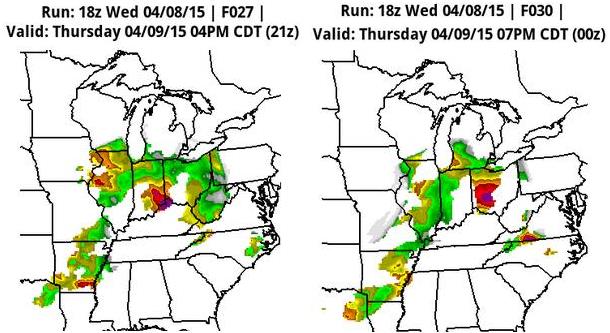
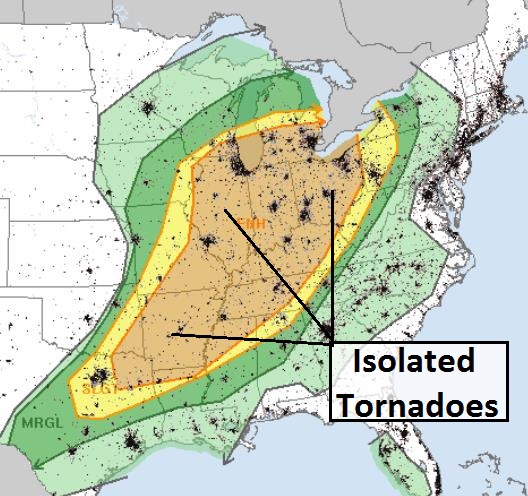
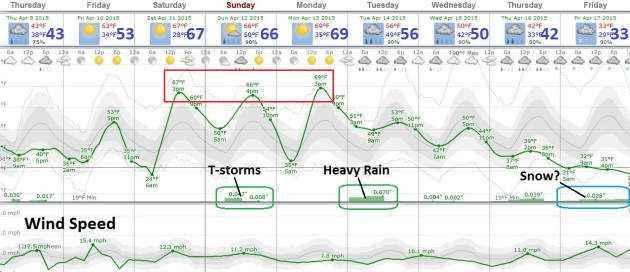
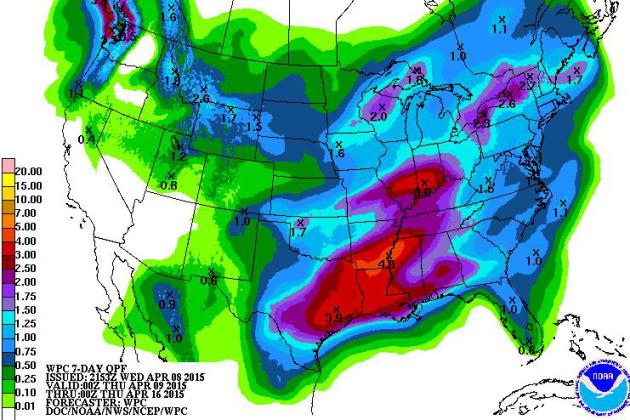
.jpg)

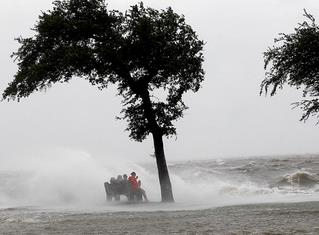
.jpg)
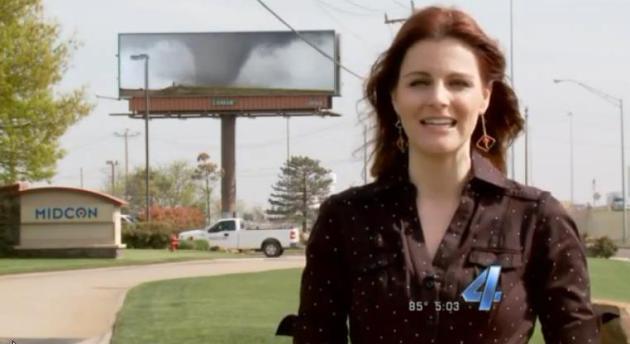

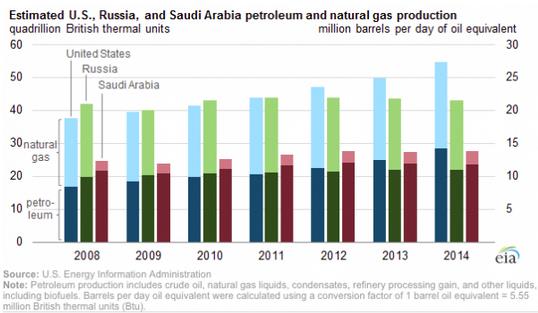




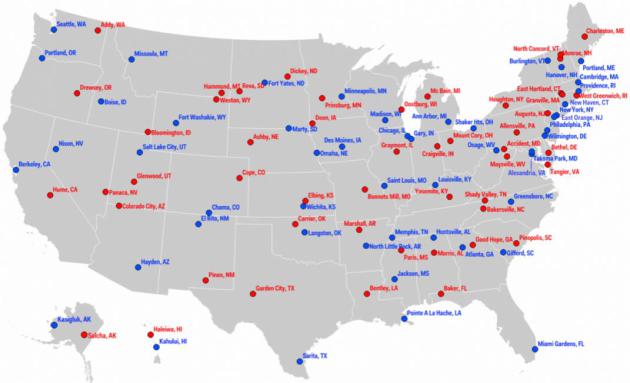

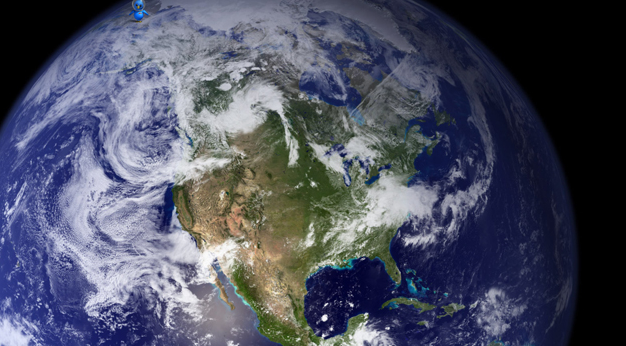
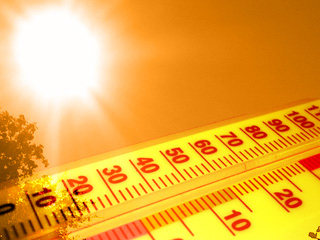

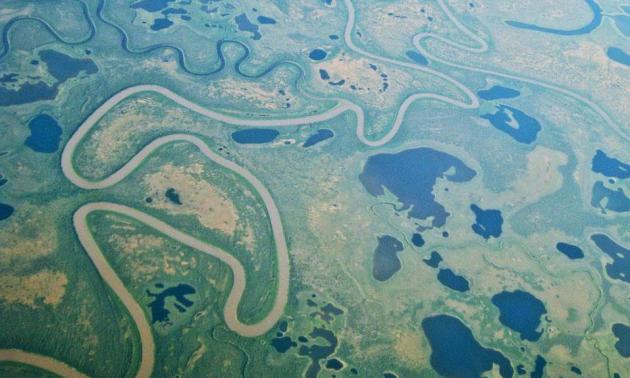
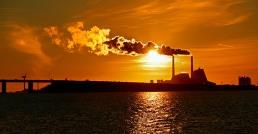

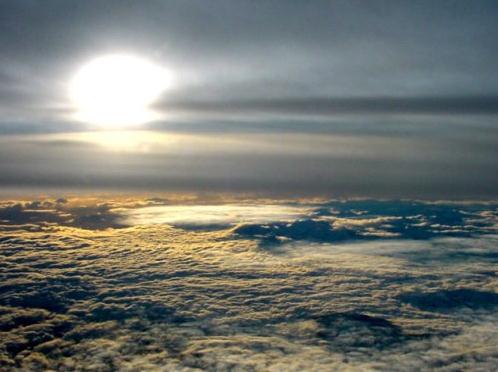
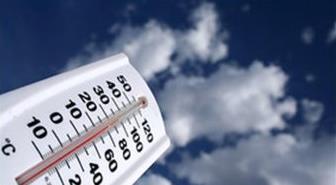
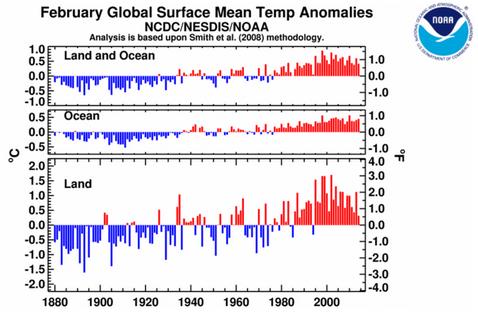
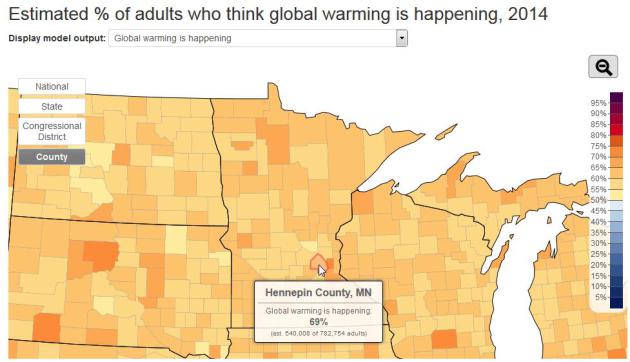


No comments:
Post a Comment